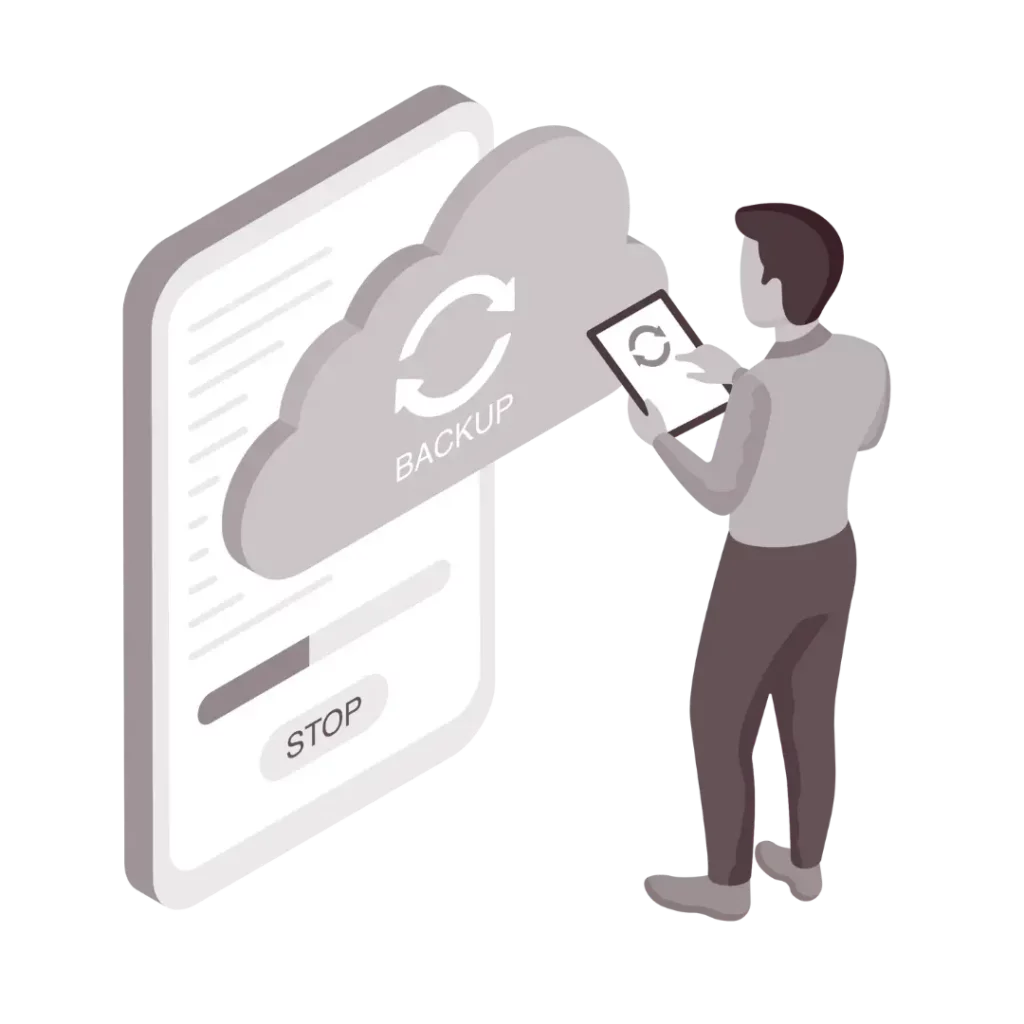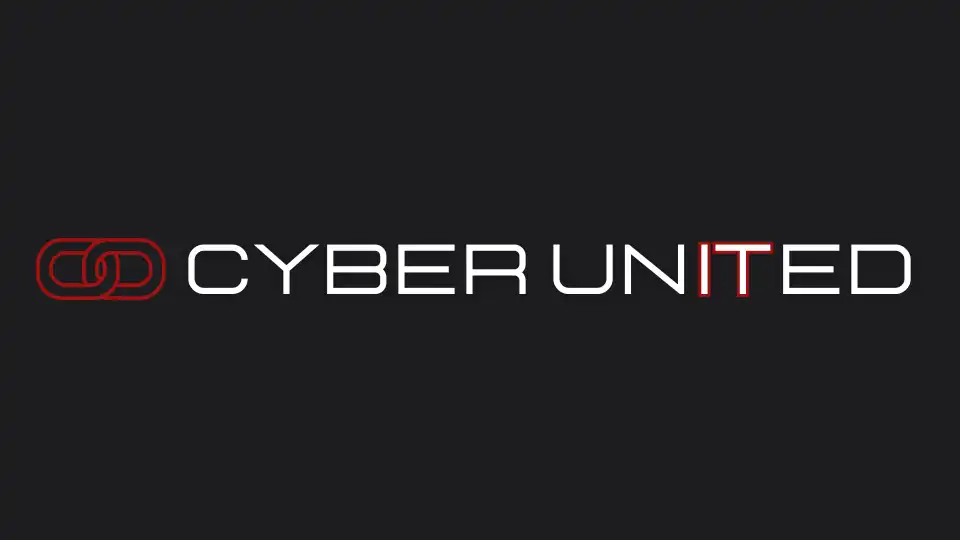Secure your data
Cloud Backups
Backup and disaster recovery solutions that can prevent downtime and ensure business continuity.
Keep Your Data Secure
Cloud backups & disaster recovery with Cyber United
Cyber United offers highly cost-effective cloud backup solutions designed to address both business data and physical devices. Our services feature unlimited restores, advanced security measures, automation capabilities, and granular search and recovery options. By integrating these solutions into your backup strategy, you can ensure a seamless and reliable process for restoring data, regardless of the source.


Why do businesses need cloud backups?
- Data Protection: Safeguards critical business data from hardware failures, cyberattacks, and accidental deletions.
- Disaster Recovery: Ensures quick data restoration and continuity in the event of natural disasters or system crashes.
- Cost Efficiency: Reduces the need for expensive on-premises storage and maintenance, lowering overall IT costs.
- Scalability: Easily adjusts to growing data needs, providing flexible storage solutions as your business expands.
- Accessibility: Allows secure access to data from any location, supporting remote work and business mobility.
- Compliance: Helps meet regulatory requirements for data retention and security, avoiding legal penalties.
SERVICES
Our cloud backup services
Files and folders backup
Files and folders cloud backup refers to the process of securely storing copies of individual files or entire folders in a cloud-based storage environment.
Entire machine backup
Entire machine cloud backup, involves backing up an entire computer system, including the operating system, applications, settings, and data, to a cloud-based storage environment.
Disaster Recovery
Disaster recovery involves planning and implementing strategies to restore IT systems, data, and operations after a disruptive event, to minimize downtime and ensure business continuity.
Why should you invest in a backup solution?
Data Protection
A backup solution ensures that your critical data is protected against accidental deletion, corruption, or loss.
Business Continuity
In the event of a cyberattack, hardware failure, or disaster, a backup allows you to quickly restore operations and minimise downtime.
Compliance
Many industries have regulatory requirements for data retention and protection. A backup solution helps you meet these compliance standards.
Reputation
Losing data can damage your reputation and erode customer trust. A backup solution demonstrates your commitment to protecting sensitive information.
Cost Savings
Investing in a backup solution can ultimately save your organisation money by preventing costly disruptions and recovery efforts.
Peace of mind
Knowing that your data is securely backed up provides peace of mind, allowing you to focus on running your business without worrying about data loss.
HOW WE WORK
Our 3-step process
Discovery Call
We start by learning about your business challenges and goals. This helps us identify how our IT services can best support you.
Backup Configuration
During the configuration phase we configure a customised cloud backup solution tailored to your business,.
Maintain
Ongoing monitoring and support, regularly verifying backup integrity and assisting with any data recovery needs.
Frequently asked questions
Cloud backup involves securely storing copies of your data on remote servers maintained by cloud service providers. This data is automatically backed up from your devices and systems to the cloud, where it is encrypted and stored safely. In the event of data loss, corruption, or hardware failure, you can quickly restore your data from the cloud, ensuring business continuity.
Cloud backup offers several advantages over on-premises solutions, including off-site storage for added security against physical disasters, such as fires or floods. It also provides scalability, allowing you to easily adjust your storage needs as your business grows. Additionally, cloud backup typically includes automated processes and remote access, simplifying data management and recovery.
Cloud backup providers implement robust security measures to protect your data. This typically includes encryption both during transmission and while at rest, secure access controls, and regular security audits. It’s important to choose a reputable provider that complies with industry standards and regulations to ensure your data is well protected.
The frequency of your cloud backups should align with your business needs and data volatility. For critical data, daily or even real-time backups may be necessary. For less critical information, weekly or monthly backups might suffice. Many cloud backup solutions offer automated scheduling to ensure your data is consistently backed up without manual intervention.
The benefits of cloud backups include secure offsite storage, automated backup scheduling, easy access from any location, and scalable solutions. Cloud backup also provides peace of mind by protecting your data from local disasters and hardware failures.
Yes, many backup solutions include features to protect against ransomware attacks. This often involves regular scans for malware, versioning to keep historical backups, and immutable backups that cannot be altered or deleted. However, it’s also essential to implement a comprehensive security strategy that includes antivirus software and employee training.
Yes, modern cloud backup solutions can handle backups for both physical devices, such as computers and servers, as well as cloud-based applications like M365, OneDrive, SharePoint, and Teams. This comprehensive approach ensures all your data, whether stored on-premises or in the cloud, is protected and recoverable.
The 3-2-1 backup strategy is a widely recommended approach to ensure data protection. It involves:
- Three Copies of Data: Maintain three copies of your data—one primary copy and two backups.
- Two Different Media: Store the backups on two different types of media, such as an external hard drive and cloud storage.
- One Offsite Backup: Keep one backup offsite to protect against local disasters, such as fire or theft.
This strategy helps safeguard against data loss by diversifying storage locations and types.
For more details on the 3-2-1 backup strategy, visit Acronis’ blog.
Yes, cloud backup services enable you to access your data from any location with an internet connection. This flexibility allows you to retrieve and restore your files quickly, whether you’re in the office or traveling.
The amount of cloud storage space you need depends on the volume of data you want to back up. Consider factors such as the size of your files, the frequency of backups, and retention policies. Most cloud backup providers offer scalable storage options to accommodate your needs.
Yes, cloud backup services can be used for both personal and business data. There are solutions tailored to individual users as well as enterprise-level solutions designed for business needs, offering scalable and flexible options for different data protection requirements.
Incremental backup is a method where only the changes made since the last backup are saved. This approach reduces the amount of data transferred and stored, making backups faster and more efficient. It works by comparing the current state of data with the last backup to identify and back up only new or modified files.
A full backup involves copying all selected data, creating a complete replica of your files. In contrast, an incremental backup only saves changes made since the last backup. While full backups provide a comprehensive snapshot, incremental backups are more storage-efficient and faster.
Our backup solutions are designed to handle large data volumes by offering scalable storage options. They may use features like data compression and deduplication to manage large backups efficiently, ensuring that storage and bandwidth are optimised.
Yes, our backup services allow you to customise backup schedules and retention policies. This flexibility lets you set backup frequencies, retention periods, and specific times for backups based on your business needs and data protection requirements.
